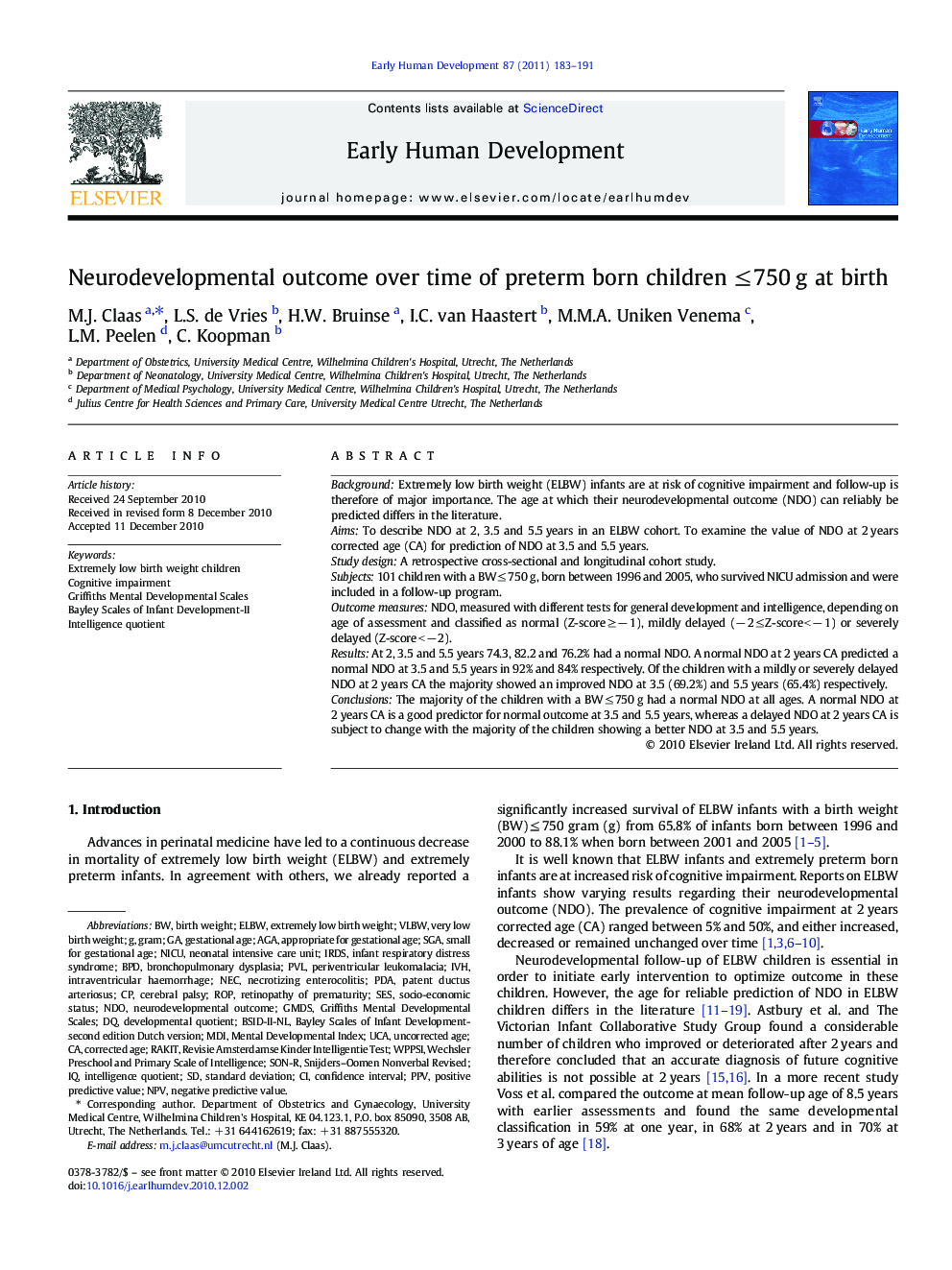| Article ID | Journal | Published Year | Pages | File Type |
|---|---|---|---|---|
| 3916895 | Early Human Development | 2011 | 9 Pages |
BackgroundExtremely low birth weight (ELBW) infants are at risk of cognitive impairment and follow-up is therefore of major importance. The age at which their neurodevelopmental outcome (NDO) can reliably be predicted differs in the literature.AimsTo describe NDO at 2, 3.5 and 5.5 years in an ELBW cohort. To examine the value of NDO at 2 years corrected age (CA) for prediction of NDO at 3.5 and 5.5 years.Study designA retrospective cross-sectional and longitudinal cohort study.Subjects101 children with a BW ≤ 750 g, born between 1996 and 2005, who survived NICU admission and were included in a follow-up program.Outcome measuresNDO, measured with different tests for general development and intelligence, depending on age of assessment and classified as normal (Z-score ≥ − 1), mildly delayed (− 2 ≤ Z-score < − 1) or severely delayed (Z-score < − 2).ResultsAt 2, 3.5 and 5.5 years 74.3, 82.2 and 76.2% had a normal NDO. A normal NDO at 2 years CA predicted a normal NDO at 3.5 and 5.5 years in 92% and 84% respectively. Of the children with a mildly or severely delayed NDO at 2 years CA the majority showed an improved NDO at 3.5 (69.2%) and 5.5 years (65.4%) respectively.ConclusionsThe majority of the children with a BW ≤ 750 g had a normal NDO at all ages. A normal NDO at 2 years CA is a good predictor for normal outcome at 3.5 and 5.5 years, whereas a delayed NDO at 2 years CA is subject to change with the majority of the children showing a better NDO at 3.5 and 5.5 years.
